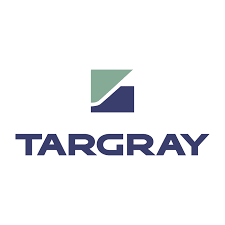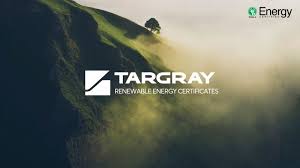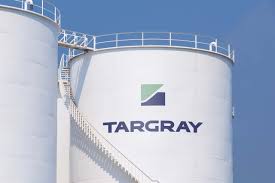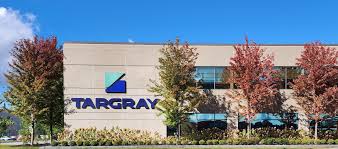〆A Global Provider of Sustainable Commodities and Supply Chain Solutions in the Carbon Trading, Renewable Fuels, Solar, Battery, and Sustainable Cotton Sectors
Founded in 1987 in Montreal, Canada as a family-run trading company, Targray has evolved into a rapidly expanding international commodities firm. Today, Targray stands as a global provider in the realms of carbon trading, renewable fuels, solar energy, battery materials, and sustainable cotton. The company boasts offices and storage terminals across the United States, Asia, and Europe, underscoring its significant growth and international reach. I sat down with Mr. Andrew Richardson and asked him about the company’s strategy.
(Text by Hiro Yamamoto)
Photo courtesy= Targray
https://www.jmd.co.jp/article.php?no=298880

―First of all, would you explain your company’s outline?
“Targray’s core mission is to provide sustainable solutions for a world in transition. Over the past three decades, the company has continuously transformed itself in pursuit of new opportunities and has expanded global operations, including the recent addition of a corporate office in Rotterdam, Netherlands. We are committed to supporting the transition to clean energy while delivering quality and value across the supply chain.”
―Would you explain to us details about your company’s main field?
“At Targray, we are committed to responsible stewardship in every market, focusing on adaptation, innovation, and advancing renewable energy. Our Environmental Commodities business offers leading in-house expertise on a broad range of environmental products and services, including renewable energy certificates (RECs and I-RECs), and various carbon credits and allowances for voluntary and compliant carbon markets around the world. We help shipping companies comply with the European Union Emissions Trading System (EU-ETS) by offering structured solutions for acquiring and managing their carbon emission allowances. Our services ensure our clients receive the best value for their money while meeting regulatory requirements. The desk’s environmental programs and comprehensive decarbonization packages, which include the supply of both marine biofuels and EU Allowances in the EU ETS for the shipping sector, are designed to ensure efficient and cost-effective compliance with the EU Emissions Trading System.”

―Would you tell us your company’s track record?
“Targray has built a strong reputation for reliability and excellence over the years, having worked with partners in more than 50 countries around the world. Our large network of trusted partners, robust supply chain solutions, and in-house expertise around the carbon trade’s legal, financial, compliance, and sustainability aspects allow us to create differentiated value for our clients in global markets. We provide tailored emissions reduction solutions for both large and small emitters. We have facilitated numerous significant transactions of EU Allowances (EUAs), helping our clients in the maritime industry reduce their carbon footprints and achieve regulatory compliance. Our extensive network and expertise in the carbon trading market have enabled us to secure competitive prices and offer cost-effective solutions to our clients. Our successful track record demonstrates our commitment to delivering value and supporting our clients’ sustainability goals.”

―What do you expect the Japanese maritime market from now on?
“The Japanese maritime market is on the brink of significant growth and transformation, driven by global sustainability initiatives and stricter environmental regulations. We expect a greater emphasis on reducing carbon emissions and improving energy efficiency. As Japan continues to innovate and invest in green technologies, we foresee increased collaboration between Japanese maritime operators and global companies like Targray to meet these new standards. This will likely lead to a greater adoption of carbon trading and offsetting mechanisms, particularly by procuring EUAs to comply with the EU Emissions Trading System (EU-ETS).”

―Would you tell us your company’s strategy, such as what is aiming for your business, and what would you like to achieve in your business?
“Our strategy at Targray is to lead the transition towards a more sustainable and low-carbon economy. In the maritime industry, our goal is to be the preferred partner for shipowners and operators seeking to comply with environmental regulations and reduce their carbon footprints. We aim to achieve this by providing the most value for money in the structure of procuring EUAs. Our approach includes securing competitive prices, offering flexible procurement options, and ensuring efficient and transparent transactions. By delivering cost-effective and reliable EUA solutions, we strive to help our clients meet their compliance obligations while optimizing their operational costs and maximizing the benefits of renewable energy adoption. Through continuous improvement and strong relationships with our partners, we are committed to driving positive environmental impact and contributing to a carbon-neutral future for the maritime industry.”

■Profile
A graduate of McGill University with a B.A. in Economics and Finance and born and raised in Montreal, Quebec, Andrew joined the family business in 1989 as a distribution manager. He rose through the ranks and assumed various positions of increased responsibility until being named President of Targray in 2007.
Since his appointment, Andrew has grown the company exponentially, with company revenues soaring over 1000% and the organization transforming itself from an optical disc materials supplier into an international leader in commodity trading.
Throughout his career, Andrew has been recognized with various awards. In 2016, he was named Quebec Entrepreneur of the Year, courtesy of Ernst & Young, and in 2018, a recipient of Canada’s Clean50 award by Delta Management, recognizing Canada’s leaders in sustainability contributions. Andrew is also a board member of Quebec’s Growth 100 association and a member of the Young President’s Organization.
